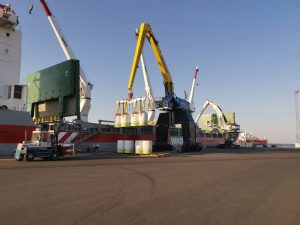Forest products, encompassing a wide range of materials such as lumber, paper, wood pulp, and other timber-based commodities, play a critical role in global trade. Shipping these products, however, presents unique challenges due to the diversity of the materials, their varying sizes, weights, and moisture sensitivities, and the logistics required to move them across continents. As forest product demand continues to rise globally, expertise in managing these shipments has become crucial to maintaining supply chains and ensuring efficient delivery to markets. One key aspect of forest product shipping is understanding the specific handling and storage requirements of different types of products. For instance, raw timber logs require a different treatment than finished paper rolls or wood panels. Logs are often bulky and heavy, requiring special handling equipment and storage conditions to prevent damage from environmental factors such as moisture or temperature changes. Additionally, these materials often need to be shipped in large quantities, requiring vessels and containers that can accommodate the bulk without compromising the integrity of the product.

On the other hand, finished paper products are more sensitive to physical damage and moisture, necessitating careful packing and handling during transportation. Global expertise in forest product shipping also involves a deep understanding of international regulations and trade agreements. Forest products, being natural resources, are often subject to environmental protection regulations, tariffs, and trade restrictions, depending on the country of origin and destination. For example, certain countries may impose restrictions on the export of raw timber due to conservation efforts or environmental policies, while others may prioritize the import of sustainable or certified wood products. Expertise in navigating these regulatory landscapes is essential for companies involved in the forest product supply chain to ensure compliance and avoid costly delays or penalties. Moreover, logistics professionals specializing in forest products shipping must be adept at optimizing routes and transportation methods to reduce costs and transit times. The choice between shipping by sea, rail, or road can significantly impact the overall efficiency of the supply chain.
Shipping by sea is often the most economical for long-distance international shipments, but it can be slower compared to rail or road transport. However, the latter options may be more feasible for shorter distances or when products need to reach inland destinations. Understanding the trade-offs between these modes of transportation and leveraging global shipping networks is a key component of expertise in this field. Sustainability is another important consideration in forest product shipping. With growing concerns about deforestation and climate change, there is increased pressure on companies to adopt environmentally friendly practices. This includes sourcing from sustainably managed forests, minimizing the carbon footprint of shipping activities, and ensuring the responsible disposal of packaging materials. Companies with global expertise in forest product shipping are well-versed in integrating sustainable practices into their logistics operations, balancing profitability with environmental stewardship. In conclusion, global expertise in forest product shipping requires a combination of specialized knowledge, regulatory awareness, logistical proficiency, and a commitment to sustainability. As the demand for forest products continues to expand, companies with the ability to manage these complexities will be well-positioned to thrive in the competitive global market.